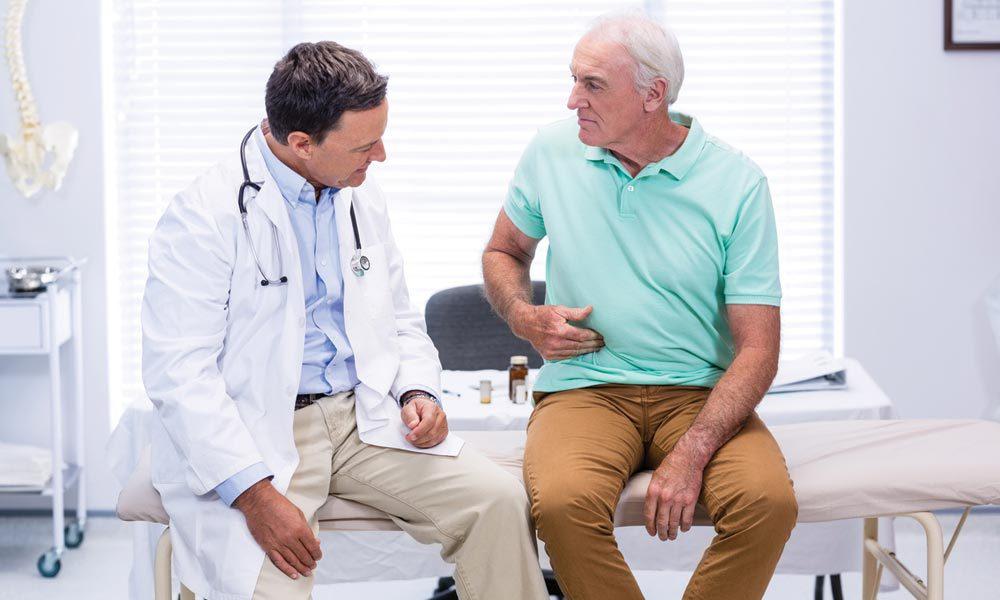
Colon cancer is a disease of the colon, which is the part of your digestive system that makes stool. About 1 out of 21 people in the US will get colon cancer during their lifetime.
Colon cancer is most common among people over age 50, but it can occur at any age. The chance of developing it rises rapidly after age 50. African Americans are more likely to get colon cancer than other racial or ethnic groups. That's why doctors recommend that screening tests begin at age 45 for African Americans and earlier for people with specific inherited conditions that increase the risk. For some types of colon cancers, there are changes in bowel habits that may be one of the earliest signs of colon cancer. Other early signs include blood in stools, colon polyps, or tumors in the colon wall.
What are the symptoms of colon cancer?
Some people have no signs or symptoms at first, and bowel habits may change before a person is aware of any potential problem. The most common symptom people have is a change in bowel habits – such as diarrhea, constipation, or narrowing stools – that persists for more than a few days. Other possible warning signs include blood in the stool, abdominal pain, fatigue, dizziness, and weight loss. However, these don't occur with all types, And some colon cancers produce no symptoms until they have reached an advanced stage.
Other colon problems can cause similar issues to colon cancer. These conditions include irritable bowel syndrome, diverticulitis, colon polyps, inflammatory bowel disease, and colon cancer precursors.
What are the stages of colon cancer?
In some early types, there may be no noticeable signs or symptoms, but small, noncancerous growths called colon polyps may occur. In other forms, people have warning signs and symptoms that prompt them to see their doctors. In stage 0, abnormal cells develop in the inner layer of cells lining the colon. This is called an adenoma or a flat lesion. There is a risk that these abnormal cells will become cancer. Stage I has spread beyond the inner surface of the colon to nearby tissues and organs (tissue) such as the outer layer of colon cells (submucosa) or has grown into the deeper layers of the colon wall (muscularis propria). In stage II, it also has spread to nearby lymph nodes. Stage III is divided into stages IIIA and IIIB.
In stage IIIA, tumor cells that can be seen at the edge (margins) of the colon go through marked change, but not beyond the muscularis mucosae – a deep fold in the innermost lining of this part of your colon – and may have breached blood vessels or lymphatic channels. In stage IIIB, malignant cells are present on two sides of one such margin and within larger clusters of abnormal cells in the colon. Stage IV colon cancer involves distance spread beyond the colon to lymph nodes, other organs, or tissues in the body.
What are colon cancer treatments?
The most effective colon cancer treatments for colon cancer and colon polyps are surgical removal of all visible tumors. Surgery usually is performed using minimally invasive laparoscopic procedures. This process often takes only a few hours, but recovery times will vary depending on what type of surgery was used, your overall health, and any other health problems you may have. Some people may need more than one operation to remove all diseased tissue in their colon, so this approach is sometimes called multimodality treatment. However, it is not always possible to remove every tumor or polyp. When colon cancer is advanced, you may need other treatments after surgery to kill any remaining colon cancer cells or prevent colon cancer recurrence. This process often involves chemotherapy and/or radiation therapy. There is no such thing as a cure for colon cancer, but your doctor(s) can help you plan the best treatment options for your specific situation.
